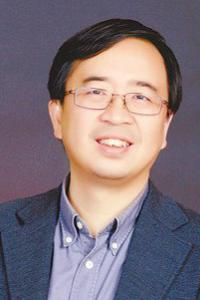Prof. Jian-Wei Pan, born in Mar, 1970, is a full professor of physics at the University of Science and Technology of China. He obtained his Ph.D. degree in 1999 from the University of Vienna. In 2011, he was elected as the academician of Chinese Academy of Sciences (CAS). In 2011, he was appointed as the chief scientist of the quantum science experiments satellite. In 2012, he was elected as TWAS Fellow. In 2014, he was appointed as the director of the CAS Center for Excellence in Quantum Information and Quantum Physics.
The research of Prof. Jian-Wei Pan focuses on quantum information and quantum foundations. As one of pioneers in experimental quantum information science, he has accomplished a series of profound achievements, which has brought him worldwide fame. Due to his numerous progresses on quantum communication and multi-photon entanglement manipulation, quantum information science has become one of the most rapidly developing fields of physical science in China in recent years. His work in the field of quantum information and quantum communication has been recognized by Nature as “features of the year 2012” and “the science events that shaped the year 2016 and 2017”, by Science as “Breakthrough of the Year 1998”, by the American Physical Society websites as “The top physics stories of the year” (six times), and by the Physics World, Institute of Physics as “Highlights of the year” (six times). Within China, his work has been selected for eleven times as “The Top Ten Annual Scientific and Technological Progresses in China”.
Related Publications
- Sequential Generation of Multiphoton Entanglement with a Rydberg Superatom. Nature Photonics 16, 658-661 (2022).
- Realization of an Error-Correcting Surface Code with Superconducting Qubits. Physical Review Letters 129, 030501 (2022).
- Deterministic Measurement of a Rydberg Superatom Qubit via Cavity-Enhanced Single-Photon Emission. Optica 9, 853-858 (2022).
- Toward a Photonic Demonstration of Device-Independent Quantum Key Distribution. Physical Review Letters 129, 50502 (2022).
- Free-space dissemination of time and frequency with 10−19 instability over 113 km. Nature (2022). doi:10.1038/s41586-022-05228-5
- Micius quantum experiments in space. Reviews of Modern Physics 94, 35001 (2022).
- Postselected Entanglement between Two Atomic Ensembles Separated by 12.5 Km. Physical Review Letters 129, 050503 (2022).
- Thermalization dynamics of a gauge theory on a quantum simulator. Science 377, 311-314 (2022).
- Experimental Side-Channel-Secure Quantum Key Distribution. Physical Review Letters 128, 190503 (2022).
- Quantum Key Distribution over 658 km Fiber with Distributed Vibration Sensing. Physical Review Letters 128, 180502 (2022).
